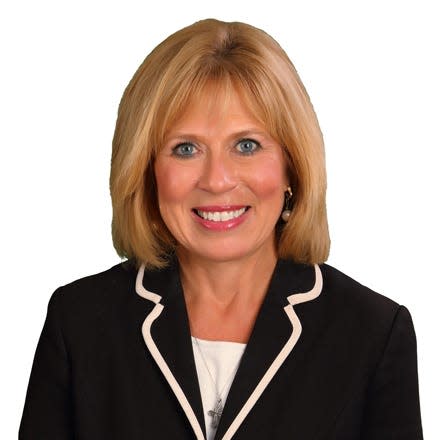BusinessWise: Start saving while you're young, even if it's just a little

Question: I am a young professional and am often told that I should start investing now, but I do not have a lot of extra money and would not know where to start. Can you share a few tips?
A: Investing at a younger age is a smart strategy to help you meet your long-term financial goals. However, setting aside funds to invest may not always seem like an option. The good news is that even if you are on a strict budget, there are opportunities to set yourself up for financial success.
Below, we share strategies that young adults can follow to make wise financial decisions for the future:
Start by becoming a student of basic financial and economic terms and concepts. Knowing how to manage money, apply for credit and stay out of debt can prove difficult without a financial literacy course, which is not usually provided in high school or college. Some progress has been made in this regard, but many states in the U.S. still do not require a personal finance course for graduation. For those who have not yet had the opportunity to learn, there are several inexpensive or free online resources, courses and books that are a great starting point to familiarize yourself with these concepts and strategies.
The magic of compound interest. Compounding is one the most powerful forces in finance and is the reason we encourage you to start investing when you are young. It can help your hard-earned money grow exponentially. The magic of compounding for your retirement savings is that you earn returns on returns − literally. Compounding means you generate income not only on the money you invest, but also on the money you already received on the investment. In other words, compounding allows your money to work for you.

Self-control is more important than a particular investment strategy. It would be prudent to take time to learn and adopt a few basic financial best practices that can help you build a healthy financial future.
The following are strategies for young (as well as older) investors to consider:
Practice self-control. Learn the essential life skill of delaying gratification. If you wait until you have saved the money for what you need, then you can put everyday purchases on a debit card instead of a credit card. Credit cards are certainly useful and can offer great rewards. Paying your credit card balance off on time helps you build a good credit score. However, it is essential to use them to your advantage − not to the advantage of the lender who profits from your bad habit of racking up interest-bearing balances. Credit cards for can be useful if used appropriately, but it is important that you pay the monthly balance in full when the bill arrives to avoid costly interest and finance charges.
Educate yourself. If you do not learn to manage your money, then other people will find ways to mismanage it for you. Some of these people could have bad intentions. Others may be well-meaning, but not fully informed about your circumstances. Instead of relying on random advice from unqualified people, take charge of your own financial future.
Learn to budget: Never let your expenses exceed your income, and always keep your eye on where your money goes. The best way to do this is by budgeting and creating a plan to track the money you have coming in and the money you have going out.
Pay yourself: Even on the tightest budget − no matter how much you owe in student loans or credit card debt or how low your salary is − there are ways to put at least a portion of your earnings into an emergency fund every month. This simple practice not only keeps you out of trouble financially, but it can also help you sleep better at night.
Start saving for retirement. Why start saving for your retirement in your twenties? Again, because of the way compound interest works, the sooner you start saving, the less principal you must invest to end up with the amount that you need to retire. Company-sponsored retirement plans are a particularly smart choice. Generally, you can contribute to the plan with pretax dollars and many companies will match part of your contribution, which is like getting free money.
Protect what you have. To ensure that your hard-earned money does not vanish in an emergency, you should take steps right now to protect it. For example, if you rent, consider renter's insurance to protect the contents of your home from loss due to burglary or fire. You should also protect your money from taxes − which is easy to do with a retirement account − and from inflation − which you can do by making sure that your money is earning interest.
The bottom line: You do not need an advanced degree in finance or specialized training to become an expert at managing your personal finances. Following these basic guidelines and finding a trustworthy adviser can put you on the path to financial security, which is the foundation that will allow you to reach your short-term and long-term goals.
Crystal Faulkner is a Cincinnati market leader with MCM CPAs & Advisors, a CPA and advisory firm offering expert guidance and beyond the bottom line thinking for today's public and private businesses large and small, not-for-profits, governmental entities and individuals. Tom Cooney is with Wealth Dimensions, an investment advisory firm. For additional information, call 513-768-6796 or visit online at mcmcpa.com. You can listen to Tom and Crystal daily on WMKV and WLHS on "Business-Wise," a morning and afternoon radio show that profiles highly successful people, companies, organizations and issues throughout our region.
This article originally appeared on Cincinnati Enquirer: BusinessWise: Tips for Young Investors
